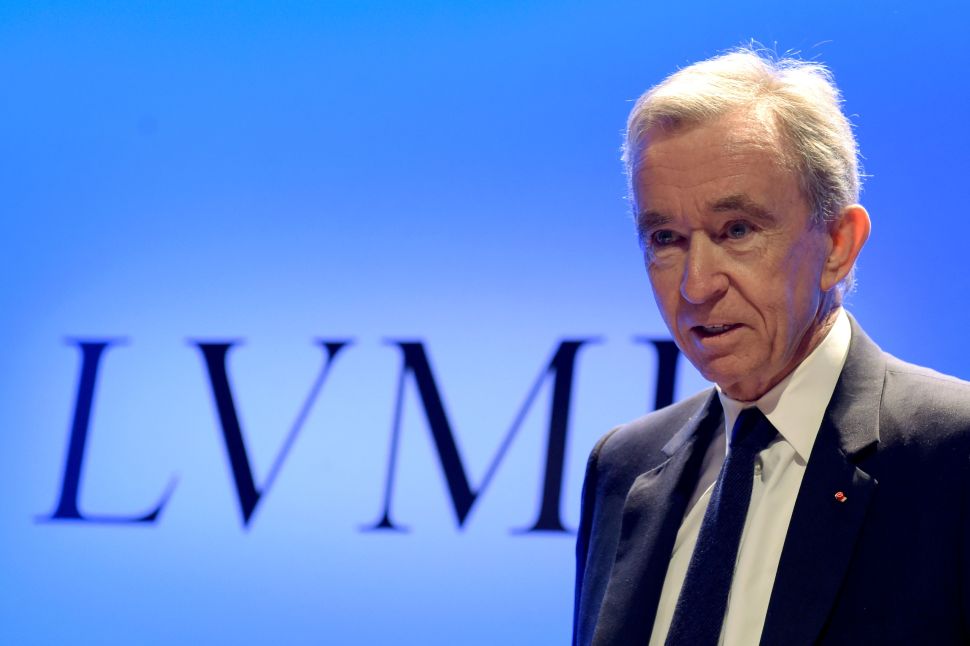
For the vast majority of us, it’s difficult to make sense of how much $100 billion really is. All we know is that level of wealth seems quite impossible to achieve—not even with lifelong investing (Warren Buffett) or extreme fame (George Clooney). If inflation is not a factor, the only two people in history who have made the “centibillionaire status” are Microsoft (MSFT) founder Bill Gates and Amazon (AMZN)’s Jeff Bezos. And as their work suggests, it takes disrupting average consumers’ lives to quite a fundamental degree to get there.
But that’s no longer the case. On Tuesday, Europe’s richest person, Bernard Arnault, who owns French luxury goods conglomerate LVMH (LVMHF), officially joined Bezos’ and Gates’ exclusive “$100 billion club” after LVMH’s shares jumped 2.9 percent to a record high on the Euronext Paris exchange.
SEE ALSO: Michael Kors Hopes to Become an American Version of LVMH
After the market bell closed on Tuesday, Arnault’s net worth stood firmly at $100.4 billion, closely trailing Bezos’ $107.4 billion (after divorce) and Gates’ $102.4 billion.
But unlike Microsoft and Amazon, Arnault’s business has little to do with technology innovations. Nor is it meant to reach mass consumers like the two American tech giants.
Arnault’s LVMH, which owns 70 high-end fashion and beauty brands, including Louis Vuitton, Christian dior (CHDRY) and Sephora, among others, is supposed to cater to a niche and exclusive class of customers. But thanks to a bizarre shift in consumer trends in recent years, the appetite for luxury is going increasingly mainstream. In the last three months of 2018, for example, LVMH posted a record quarterly revenue—largely driven by shoppers in China and the U.S.—despite a tumultuous global economy particularly concerning the two luxury-hungry countries.
Then, in the first quarter of 2019, LVMH posted another strong revenue growth of 16 percent, which helped push the company stock up as much as 43 percent since the beginning of the year and added $32 billion to Arnault’s personal worth.
For perspective, $100 billion is equivalent to about 3.6 percent of France’s total economic output last year and is the total annual GDP of the 60th richest country in the world, among 186, per the International Monetary Fund’s 2018 data.
The Arnault family is among the billionaires who pledged more than $700 million in April for the repair of Notre Dame Cathedral after the 850-year-old landmark was severely damaged by a fire. Arnault pledged €200 million ($226 million) toward the reconstruction and said LVMH would give the French government access to its creative and financial experts to assist in the restoration process.

